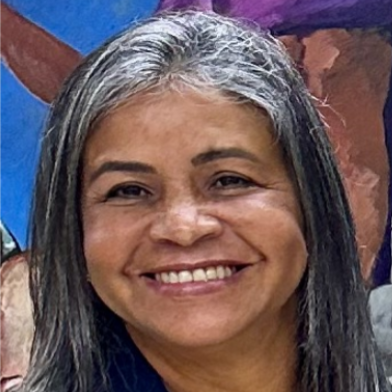
Affiliation:
Fordham University, New York
Short bio:
Dr. Milagros A. Méndez obtained her PhD in the field of School Psychology from Fordham University in New York, City. She has had many experiences as a clinician, educator and researcher over the last 30 years. She is now a tenured professor at the University of Puerto Rico, where she has taught mainly clinical and research methods courses. She served as the Chair of the Department of Psychology for approximately 6 years . For the past three years she has been appointed as the Dean for the College of Social Science. She also served for several years in the Psychology and Training (PET) committee for Caribbean Alliance of National Psychological Associations (CANPA). She has dedicated most of her research career to the development of psychosocial programs for addressing risk and protective factors related to resiliency and violence in children and adolescents and to the delivery of “disaster” mental health to affected populations due natural and man-inflicted events. Early in her career she was involved in the development of psychosocial programs for children affected by war in San Salvador and Guatemala. She has been awarded several grants to conduct her research and training projects (i.e., CDC, NIH, PR-government, UPR) in Puerto Rico. As such, she also has designed, implemented, and evaluated a training program to increase the capacities of public health professionals and to train NGO´s staff on the development of research and training proposals for funding. Most recently she was awarded a grant from the Hispanic Federation for the development, implementation and evaluation of Project PATRIA, aimed at addressing the psychosocial needs of people affected by natural and social events (i.e., hurricanes, earthquakes and most recently the COVID pandemic).
Title:
Decolonizing psychology in the context of the geopolitics
Abstract:
With globalization, there is a greater need to define the role of psychology that considers intra, inter and international developments and collaborations, to contribute to a global psychology of peace related to human rights in the context of the current geopolitics. More than ever, there is a need for developing a global psychology that incorporates into its training, its practice and research agenda concepts and findings of psychology and human rights. With more than seventy years of formalized efforts there has been poor recognition on the relationship between psychology & human rights, slow recognition for promoting the dignity and well-being of ALL people, and slow recognition for the conceptualization of human psychological development of ALL people. Principles of HR need to be represented in the science, practice, & education of psychology with an Inclusive, global science perspective that represents all of humanity to effectively address the challenges of the 21st century. Thus, the urgent need for an inclusive psychology with a de-colonial perspective, multi-indigenous & contextual geopolitics where cultural rights/diversity and Human Rights are at the core of a Decolonizing & indigenizing psychology. The current war between Israel and Palestine, and the absence/bruised message sent by psychologists about the need to perverse the lives and psychological well-being of ALL humans affected by this war is a clear example of how HR needs to be represented in the science, practice, and education of psychology. The psychosocial effects (i.e., displacement, physical and psychological trauma, disarray, educational discontinuity) of any war are felt by ALL humans in ALL parts of the world indistinctively of which side of the war you find yourself in. Psychologists have the ethical responsibility to denounce violations of ALL human rights, to intervene professionally in favor of ALL communities in need, to develop and divulge about the effects of war related research and to collaborate in the development of public policies related to HR and peace.
